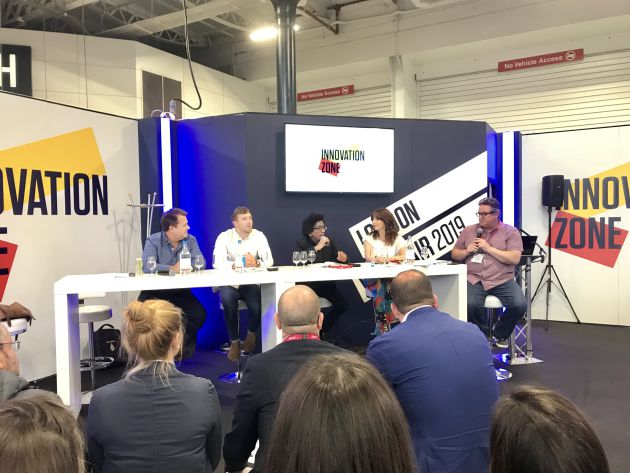
LWF: Consumers value experiences over value for money, says CGA
There has been a major shift in the way consumers decide which venues to visit, with the promise of entertainment and engagement now taking precedent over value for money.
Consumer desire for experiences over products was a hot topic at yesterday’s London Wine Fair (LWF) show opener, where a panel ranging from former Bill’s exec Duncan Goodard to The Apprentice’s Jackie Fast gathered to talk through how to capitalise on this trend.
Also in attendance was senior consumer research manager at CGA, Charlie Mitchell, who confirmed that 87% of business leaders in the out of home market rate “quality of experience” as an important driver for consumers when choosing where to visit.
In addition, “value for experience” has now overtaken value for money in business leaders’ minds as a driver of consumer choice.
This is the first time that value for experience has scored higher than value for money, “highlighting the shift in consumer perception of value, no longer meaning cheap, but also taking into account experiential factors”, Mitchell said.
“Experiential” can mean anything from an Instagram-friendly feature wall to interesting activities, or allowing access to products in new and engaging ways.
But engagement and glamour alone isn’t enough, with “service absolutely crucial to repeat business", added Mitchell.
London’s virtual reality ‘playground’ Otherworld received a shout out from panellists, along with London and Manchester-based hybrids Vagabond Wines and Salut for winning over customers.
Positive experiences can help to cement life-long loyalty.
“Some breweries are now making more money from consumer tasting events and tours than from their beer,” Goodard pointed out. “People are getting married in breweries. That creates loyalty you can’t imagine.”
Consumers have always valued experiences, the panel agreed. But thanks to social media making friends and families’ lives more visible, FOMO (fear of missing out) is something businesses could and should be aware of when tailoring their offer.
In a world where word of mouth via social media is now often more powerful than advertising, wine is “yet to catch up as a fun, entertaining and acceptable option for those enjoying a day or an evening out,” said Goodard, who went from stints at World Duty Free, Punch Taverns and Bill’s to running ten pin bowling operator, Ten Entertainment.
“We use glittery products in our drinks, which is anathema to some, but you have to put it in the context of the situation. The problem is some wine businesses end up projecting what they think their consumers want to drink. If they’re asking for Prosecco, that’s what you should be serving,” he said.
Keywords:
- CGA
- Social Media
- LWF
- value
- Business
- consumers
- over
- products
- Consumer
- money
- experiences
- mitchell
- goodard
- over value
- experiences over
- cement life
- positive experiences
- winning over customers
- hybrids vagabond wines
- based hybrids vagabond
- ‘playground’ otherworld received
- manchester based hybrids
- FOMO





